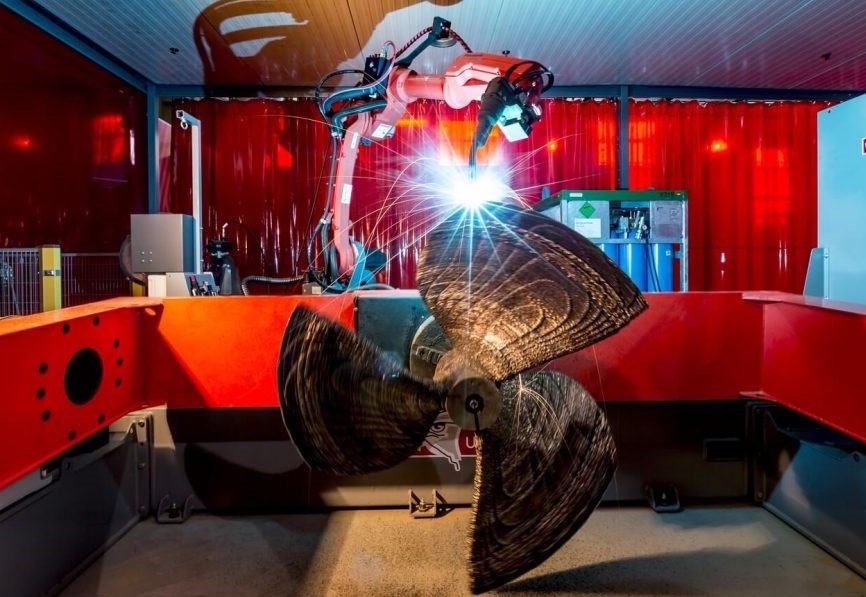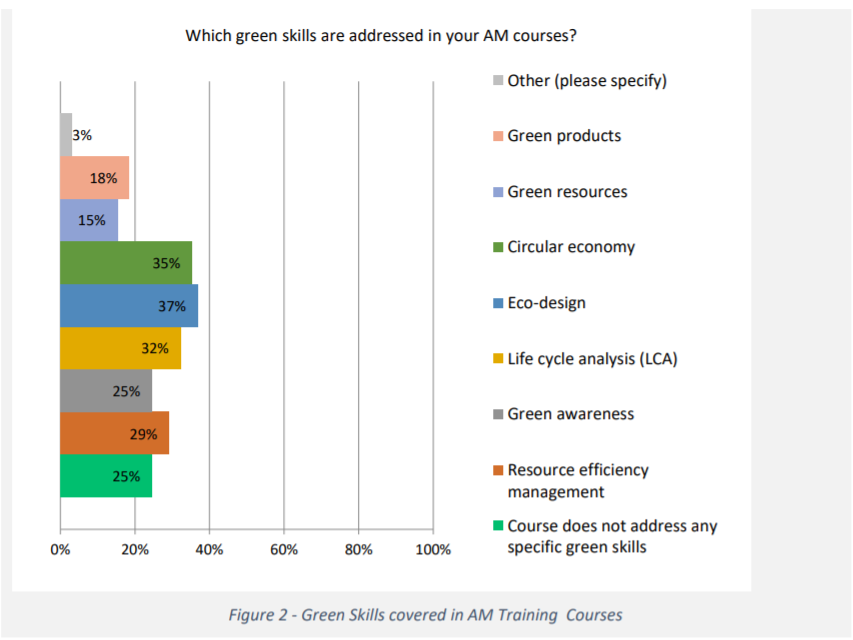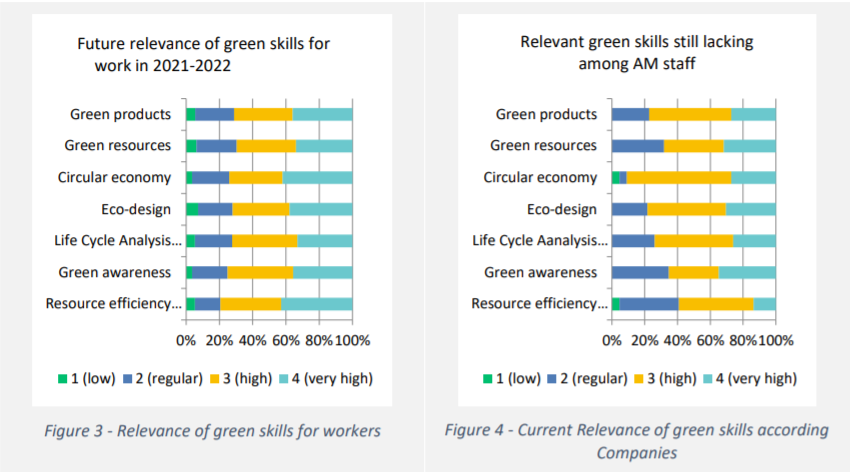这SAM(Sector Skills Strategy in Additive Manufacturing) project has released the preliminary results of its 3D printing survey, which assessed among other things the role of additive manufacturing education for environmental sustainability.
这EU-funded project is coordinated by the欧洲焊接联合会(EWF), of which3D打印行业是SAM关联合作伙伴,,,,and is developing a European Observatory in AM to identify the necessary skills for the technology and deliver them to industry.
As part of this, the project is playing a key role in consolidating the International AM Qualification System (IAMQS), and as a result of the survey’s findings has proposed a new competence unit to address the topic of sustainability within additive manufacturing.

这SAM项目
2月,SAM项目发布了欧洲添加剂制造的路线图with the aim of tackling skill gaps across the sector. The roadmap outlines the critical技能与短缺相关的挑战目前面临3D印刷行业,并提出了它打算如何在2030年之前解决它们。
除路线图外,SAM项目还引入了IAMQS。在质量保证系统的支持下,IAMQS由3D打印技术的不同能力水平的一组资格组成,这些资格与行业要求一致并由专家验证。
IAMQ通过与多个利用3D打印的多个行业的连接的选定培训提供商网络部署。SAM项目现在发布了与可持续性增材制造教育有关的新的调查结果。

SAM’s survey results
这role of education for environmental sustainability is becoming increasingly important, as people throughout Europe face new career challenges across a whole host of different industrial sectors. To adapt to these changes, many workers will need to be re-trained for new skills or expand their existing skill sets, and the need to deliver green, digital and entrepreneurial skills, alongside technical ones, will become more and more crucial in order to show the benefits of implementing sustainable processes in industrial ecosystems.
While environment and climate goals appear to be regarded with high importance by the European Commission and United Nations’ policy agendas, these aims are not achievable without an education for sustainable development approach, says SAM.
Currently, the IAMQS covers qualifications in metal additive manufacturing processing for operators, designers, supervisors, inspectors, coordinators, and engineers, alongside one qualification in polymers for designers. While environmentally-minded elements such as life cycle assessments, waste management and material reuse do appear in these qualifications, there has not yet been a dedicated training program for the sustainability aspects of 3D printing.
这2020 survey SAM conducted on the analysis of additive manufacturing needs saw more than 100 European training centers delivering 3D printing courses contacted to understand and map the educational practices employed. Through this survey it was possible to assess the mostly addressed skills, namely: technological (AM related), green, digital and entrepreneurial.
这so-called “green skills” identified by the SAM project are related to resource efficiency, green awareness, life cycle assessments, eco-design, circular economy, green resources, and green products. The survey identified that eco-design (37%), circular economy (35%), and life cycle analysis (32%) were the “green skills” most addressed by current 3D printing training courses.
调查显示,对于工人来说,应在添加剂制造培训课程中涵盖的前三名绿色技能是生态设计,循环经济和生命周期分析。经理们分享了类似的观点,其中86%的人参加了调查,希望在其劳动力中发展绿色技能。

可持续发展的新培训部门
After validation by the Industry Council, one of the pillars of the European Observatory, the SAM consortium decided to develop a training unit on sustainability for additive manufacturing, within which green awareness, circular economy and life cycle assessments will be covered. The course is designed to raise the awareness of all 3D printing professionals ranging from operators to designers and engineers.
这course is aligned with the European Qualifications Framework (EQF) level 3, and aims to provide students with a basic knowledge of the economic and social context of sustainability policies, such as the UN’s Sustainable Development Goals (SDGs), and how to incorporate sustainability throughout a product’s life cycle.
Students on the course will also learn how the additive manufacturing industry is currently implementing sustainable practices, as well as their limitations and advantages. Skills-wise, the course will teach participants how to spot ideas and opportunities for more sustainable processes and methods within 3D printing operations, and help them to identify cases for which 3D printing could lead to more sustainable products.
实际上,该课程将需要7个小时才能完成,在包括自学的情况下对应于14个小时的工作量。在课程结束时,将通过简短的多项选择书面评估来评估参与者有关添加剂可持续性的知识和技能。
Further information on the additive manufacturing sustainability survey can be found in the paper titled:“添加剂制造对环境可持续性的影响”,,,,co-authored by S. Masurtschak and A. Almeida.
这SAM项目also has another survey underway aimed at Research and Development organizations, called:“Survey on AM Skills & Trends for RTO’s”,,,,which interested parties can take part in here.
Subscribe to the3D打印行业通讯for the latest news in additive manufacturing. You can also stay connected by following us on推特并喜欢我们Facebook。
Looking for a career in additive manufacturing? Visit3D打印作业在行业中选择一系列角色。
订阅我们YouTube channelfor the latest 3D printing video shorts, reviews and webinar replays.
Featured image shows“Green skills” addressed by current additive manufacturing training courses. Image via SAM project.



